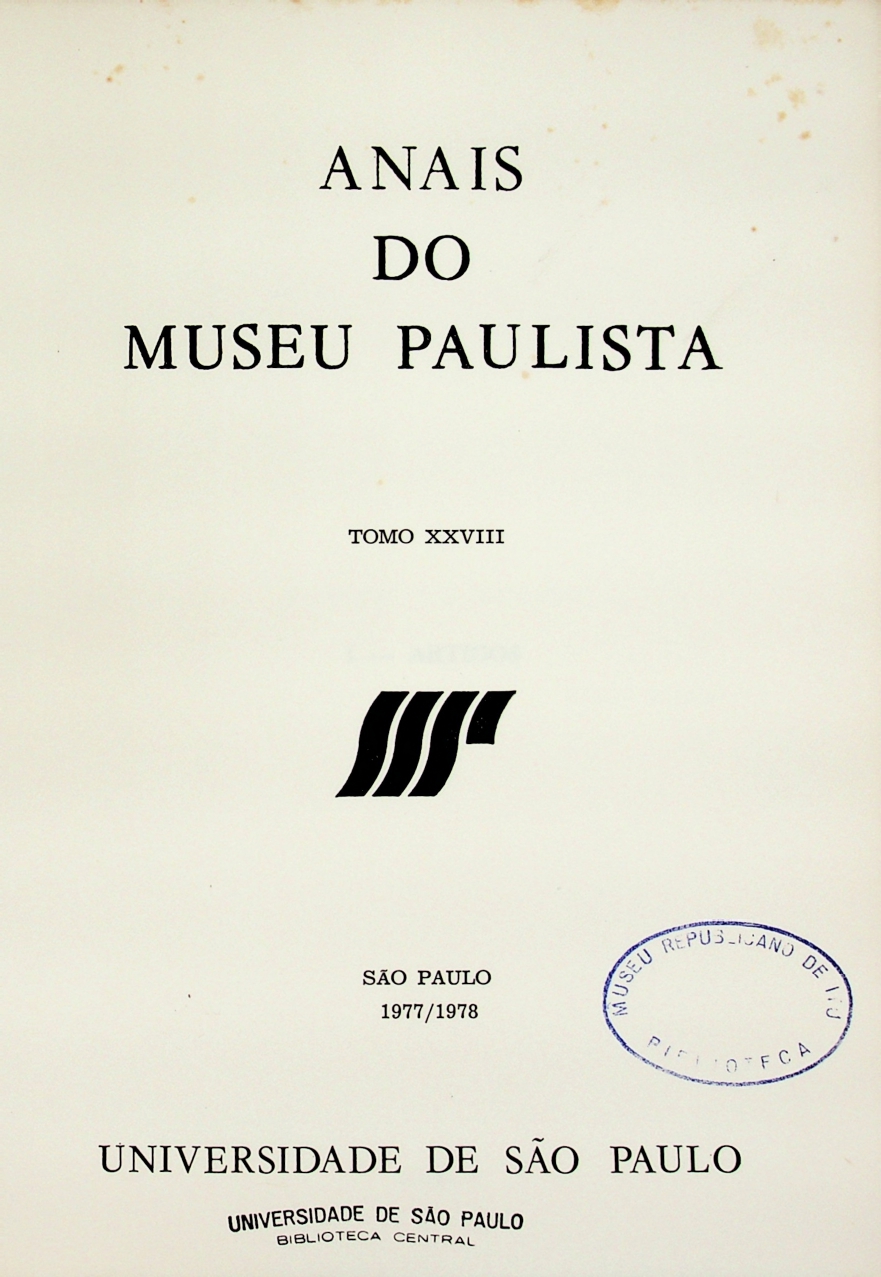História: conceito e obra
DOI:
https://doi.org/10.11606/1982-02671978TomoXXVIIIe6Abstract
Intellectual work is always politically engaged work. For this very reason every study has to face, in some moment, the task of questioning the political intention which asserts that research and scientific work can be “neutral”. This paper intends to pose questions concerning the meaning of historical work, since historians have usually been considered as specific and particular intellectual workers. Whenever the rules of the division of intellectual work are followed and respected, historians are expected to describe and explain past historical processes. From this point of view historians have only to look back into the past searching for already settled facts, which reach the present through documents. Wishing to reconstruct a reliable picture of the past, historians have often followed the documents as if they were the true “bearers of history”. This submissiveness in the face of the documents has not only made historians accept subjects or topics defined by the documents, but has also transformed them
into subjects for investigation and analysis. The work of historians, therefore, has proceeded in circles : it both starts and finishes within the same subject, though with the objective of widening and improving understanding. We intend to discuss in this paper abolitionism, immigration policy and republicanism. These subjects formed part of the same moment in the Brazilian historical process of late nineteenth century, although they appear as separate and even divergent political currents. Our aim is to point out that in the proposal to eliminate the appropriation of man by man two intentions were present: to free the person of the slave, but also to maintain afterwards control over his action and most importantly control over his labor. In this sense, abolitionist propaganda represented part of the proposal for the formation of a labor market within well defined parameters. We also attempt to indicate how these objectives formed part of a broader and seemingly contradictory political process: to democratize in order to increase and centralize the mechanisms of social control.
Downloads
Downloads
Published
Issue
Section
License
Copyright (c) 1978 Maria Stella Martins Bresciani

This work is licensed under a Creative Commons Attribution 4.0 International License.
Autores que publicam nesta revista concordam com os seguintes termos:
- Autores mantém os direitos autorais e concedem à revista o direito de primeira publicação, com o trabalho simultaneamente licenciado sob a Licença Creative Commons Attribution que permite o compartilhamento do trabalho com reconhecimento da autoria e publicação inicial nesta revista.
- Autores têm autorização para assumir contratos adicionais separadamente, para distribuição não-exclusiva da versão do trabalho publicada nesta revista (ex.: publicar em repositório institucional ou como capítulo de livro), com reconhecimento de autoria e publicação inicial nesta revista.
- Autores têm permissão e são estimulados a publicar e distribuir seu trabalho online (ex.: em repositórios institucionais ou na sua página pessoal) a qualquer ponto antes ou durante o processo editorial, já que isso pode gerar alterações produtivas, bem como aumentar o impacto e a citação do trabalho publicado (Veja O Efeito do Acesso Livre).



